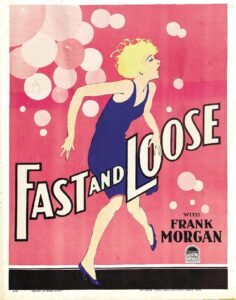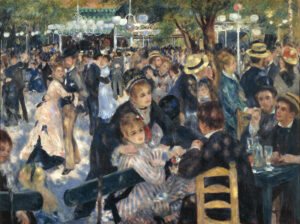 Editor’s Note: Leo Barnes is doing English-Language teaching work in Indonesia this summer, part of Dr. Leslie Bohon’s cohort of excellent students. He sends us this entry, for a metaphor first recorded by the OED in 1915.
Editor’s Note: Leo Barnes is doing English-Language teaching work in Indonesia this summer, part of Dr. Leslie Bohon’s cohort of excellent students. He sends us this entry, for a metaphor first recorded by the OED in 1915.
A shrinking violet is an exaggeratedly shy person. Since violets grow in the low herb layer of most forests, their rich purple petals are often veiled behind other vegetation. So the metaphor goes, getting a shy person out of their shell is as hard as spotting violets in a forest.
In pop culture, two figures – ironically highly visible superheroes – come to mind: Violet Parr and Salu Digby. Parr, the shy heroine from the Incredibles franchise, has the power of invisibility while Digby from DC comics is better known as her alter ego Shrinking Violet, and can shrink herself. How apropos!
 While many around them often overlook shrinking violets, both in popular media and real life, they should not judge a book by its cover. Charismatic Atticus Finch may have endeared himself to readers in To Kill a Mockingbird but it was Boo Radley, the town recluse, who saved the day. In Harry Potter, the unprepossessing Neville Longbottom was the one who ultimately killed Voldemort.
While many around them often overlook shrinking violets, both in popular media and real life, they should not judge a book by its cover. Charismatic Atticus Finch may have endeared himself to readers in To Kill a Mockingbird but it was Boo Radley, the town recluse, who saved the day. In Harry Potter, the unprepossessing Neville Longbottom was the one who ultimately killed Voldemort.
In 2014, Ronald Read, a Vermont janitor and gas station clerk, donated six million dollars to his town library and hospital – money he had earned over a lifetime of frugality and investing. This from a man who barely graduated high school and was often mistaken for being broke.
While shrinking violets can be difficult to draw out, in my book a reserved nature is certainly better than an overbearing one. Sometimes shyness is endearing and, in the case of Read or Radley, even noble.
Editor’s Note: While the flowers of the violet plants have long shrunk in my garden, we still need words and metaphors. Send them to me by e-mail (jessid -at- richmond -dot- edu) or leaving a comment below.
See all of our Metaphors of the Month here and Words of the Week here.
Creative-Commons images by Leo Barnes.












